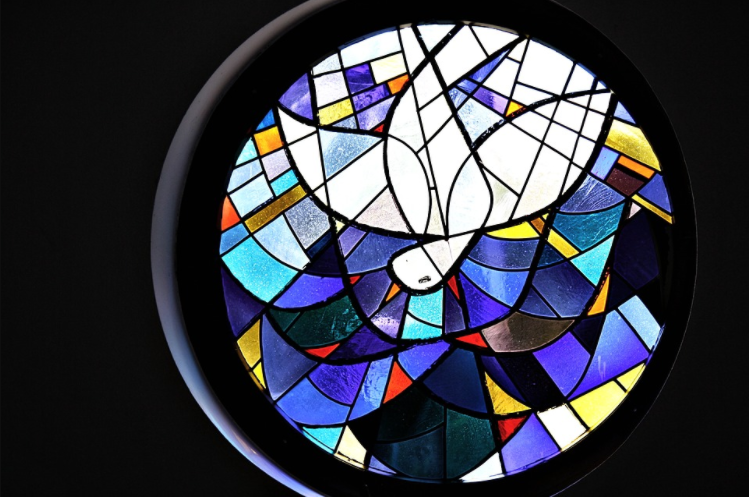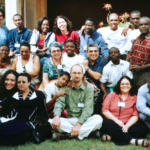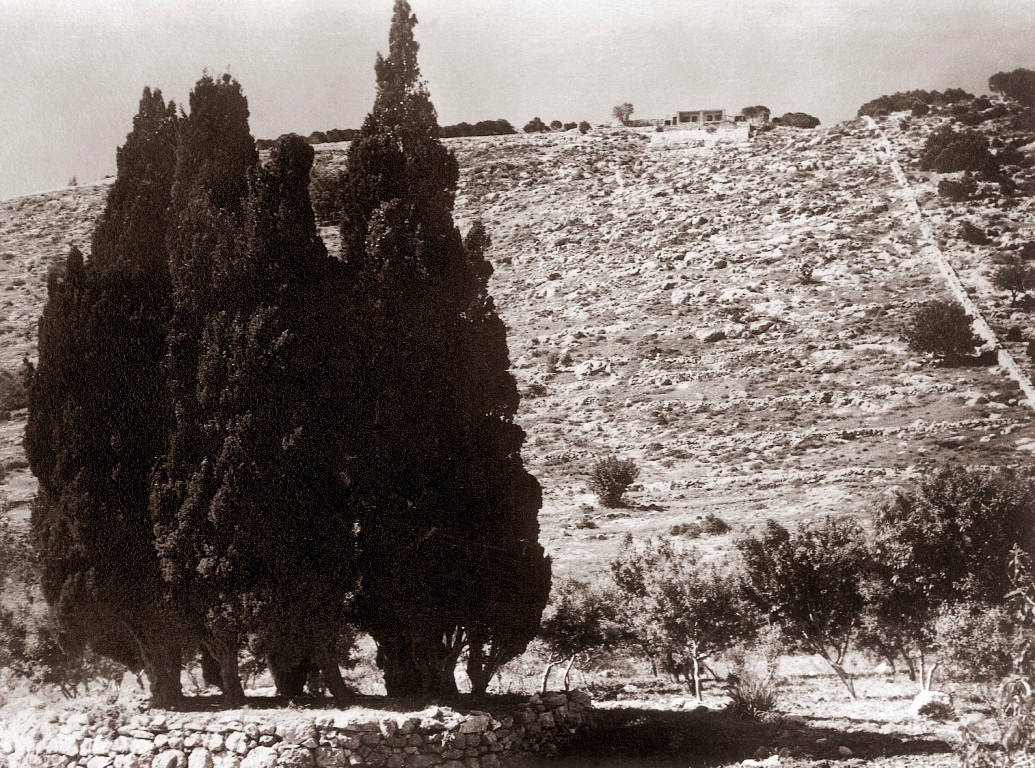
We Are One – Bahá’u’lláh’s Teachings Against Violence

Human beings are not inherently violent. But that we have a problem with violence is undeniable.
How many times have prophets, poets, philosophers and philanthropists of all kinds called us to love and peace? Yet how many times have human beings found (indeed continue to find) excuses for violence? In this article five aspects of Bahá’u’lláh’s teachings against violence are discussed: individual violence, religious violence, political violence, domestic violence and interstate violence.
An aspect of the oneness of humanity – that human beings ought be like “one soul and one body” is that violence between human beings ought become a thing of the past. Bahá’u’lláh wrote:
… it is Our purpose, through the loving providence of God – exalted be His glory – and His surpassing mercy, to abolish, through the force of Our utterance, all disputes, war, and bloodshed, from the face of the earth.[1]
A key aspect of Bahá’u’lláh’s teachings against violence concerns addressing the underlying cause of violence:
The well-being of mankind, its peace and security, are unattainable unless and until its unity is firmly established. This unity can never be achieved so long as the counsels which the Pen of the Most High hath revealed are suffered to pass unheeded.[2]
The absence of unity is the cause of conflict.
As we saw earlier, when Bahá’u’lláh announced his mission, closely associated with this announcement was the abolition of the “sword”. This symbolic abrogation of violence was followed by specific teachings which comprehensively address various forms of human violence.
Let none contend with another, and let no soul slay another … What! Would ye kill him whom God hath quickened, whom He hath endowed with spirit through a breath from Him? Grievous then would be your trespass before His throne! Fear God, and lift not the hand of injustice and oppression to destroy what He hath Himself raised up….[3]
Further:
Ye have been forbidden in the Book of God to engage in contention and conflict, to strike another, or to commit similar acts whereby hearts and souls may be saddened.[4]
These general prohibitions of murder and violence are complemented by teachings addressing the various “excuses” we have invented for violence.
We have already seen the prohibition of religious fanaticism and hatred. Even more specifically, Bahá’u’lláh has abolished the idea of “holy war”:
Beware lest ye shed the blood of any one…. We have abolished the law to wage holy war against each other. God’s mercy hath, verily, encompassed all created things, if ye do but understand.[5]
In Bahá’u’lláh’s last will and testament he wrote:
O ye that dwell on earth! The religion of God is for love and unity; make it not the cause of enmity or dissension.[6]
Sadly, religion is not the only justification that has been invented for violence. Another is revolution in the name of overcoming various forms of injustice. The suffering generated by violent uprisings is particularly obvious in recent times. In this respect, Bahá’u’lláh wrote:
To none is given the right to act in any manner that would run counter to the considered views of them who are in authority. That which He hath reserved for Himself are the cities of men’s hearts….[7]
Or again:
O people! Spread not disorder in the land, and shed not the blood of any one….[8]
Or further:
What mankind needeth in this day is obedience unto them that are in authority, and a faithful adherence to the cord of wisdom. The instruments which are essential to the immediate protection, the security and assurance of the human race have been entrusted to the hands, and lie in the grasp, of the governors of human society.[9]
Violence in the domestic sphere is another example where excuses have been made for violence. Society still struggles to overcome domestic violence. We have seen the prohibition against “striking another” above. The natural meaning extends to a prohibition of domestic violence against women. That there is no exception in this regard Bahá’u’lláh makes clear in the following. He imposes a duty on society (particularly directed to men) to ensure women are not subjected to “cruelty”, “transgression” or “tyranny”:
As [the friends of God] do not allow themselves to be the object of cruelty and transgression, in like manner they should not allow such tyranny to visit the handmaidens of God.[10]
One of the leading causes of violence has been the competitive quest for power between countries. A further dimension of Bahá’u’lláh’s thought bearing on violence is found in his counsels to the governors of society promoting peace and disarmament.
We pray God – exalted be His glory – and cherish the hope that He may graciously assist the manifestations of affluence and power and the daysprings of sovereignty and glory, the kings of the earth – may God aid them through His strengthening grace – to establish the Lesser Peace. This, indeed, is the greatest means for insuring the tranquillity of the nations. It is incumbent upon the Sovereigns of the world – may God assist them – unitedly to hold fast unto this Peace, which is the chief instrument for the protection of all mankind. It is Our hope that they will arise to achieve what will be conducive to the well-being of man. It is their duty to convene an all-inclusive assembly, which either they themselves or their ministers will attend, and to enforce whatever measures are required to establish unity and concord amongst men. They must put away the weapons of war, and turn to the instruments of universal reconstruction. Should one king rise up against another, all the other kings must arise to deter him. Arms and armaments will, then, be no more needed beyond that which is necessary to insure the internal security of their respective countries. If they attain unto this all-surpassing blessing, the people of each nation will pursue, with tranquillity and contentment, their own occupations, and the groanings and lamentations of most men would be silenced. We beseech God to aid them to do His will and pleasure. He, verily, is the Lord of the throne on high and of earth below, and the Lord of this world and of the world to come. It would be preferable and more fitting that the highly honored kings themselves should attend such an assembly, and proclaim their edicts. Any king who will arise and carry out this task, he verily will, in the sight of God, become the cynosure of all kings. Happy is he, and great is his blessedness![11]
O rulers of the earth! Be reconciled among yourselves, that ye may need no more armaments save in a measure to safeguard your territories and dominions. Beware lest ye disregard the counsel of the All-Knowing, the Faithful.
Be united, O kings of the earth, for thereby will the tempest of discord be stilled amongst you, and your peoples find rest, if ye be of them that comprehend. Should any one among you take up arms against another, rise ye all against him, for this is naught but manifest justice. Thus did We exhort you in the Tablet sent down aforetime, and We admonish you once again to follow that which hath been revealed by Him Who is the Almighty, the All-Wise.[12]
Here Bahá’u’lláh counsels a system of collective security. He defines two preconditions to make it effective in ending warfare: establishing “unity” (reconciliation, concord) and “disarmament”. Although the United Nations, and the League of Nations before it, represented steps in this direction, neither achieved either of these preconditions. And war has continued to beset humanity.
While humanity continues to struggle to overcome violence, Bahá’u’lláh emphatically foresaw a more peaceful future.
These fruitless strifes, these ruinous wars shall pass away, and the ‘Most Great Peace’ shall come.[13]
The foregoing review, although showing the complex ways in which Bahá’u’lláh’s teachings address violence, is still incomplete. Other themes relevant to peace, such as education, racism, consultation, equality of women and men, economic justice and others, have not been mentioned. The Promise of World Peace, a statement issued for the 1986 International Year of Peace by the Universal House of Justice, the international governing council of the Baha’i Faith, provides a full review of these issues.
This article is the 23rd in a series of what I hope will become 200 articles in 200 days for the 200th anniversary of the birth of Bahá’u’lláh. The anniversary is being celebrated around the world on 21 and 22 October 2017. The articles are simply my personal reflections on Bahá’u’lláh’s life and work. Any errors or inadequacies in these articles are solely my responsibility.
Farsi Translation:
خوشبختانه انانيكه مايلند ميتوانند اين مقالات را در وبسايت “تارنماى” زير بفارسى مطالعه فرمايند.
http://www.noghtenazar.org/node/1533







